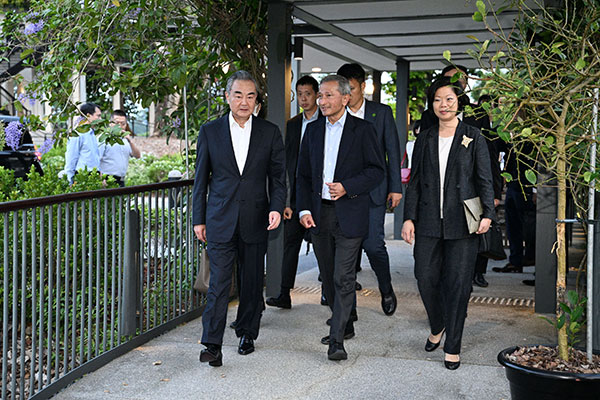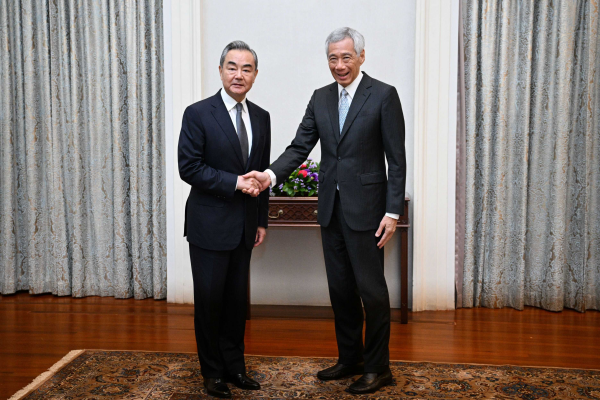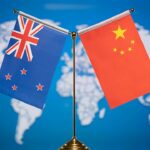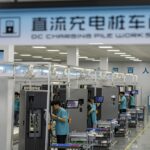Singaporean Prime Minister Lee Hsien Loong met with Senior Chinese diplomat Wang Yi on Friday, the second day of Wang’s Southeast Asian trip with stops also in Malaysia and Cambodia. The trip eyes deepening China-Southeast Asia cooperation amid external disturbances that are attempting to shake ASEAN’s balancing strategy, according to analysts.
During the meeting, Wang said the upgrade of China-Singapore relations to an all-round high-quality future-oriented partnership opened up new prospects for high-level mutually beneficial cooperation.
China’s development is the growth of peace forces and the enhancement of stability factors, which will bring lasting dividends and development opportunities to all countries in the world, especially neighboring countries, said Wang, member of the Political Bureau of the CPC Central Committee and Minister of Foreign Affairs.
Out of the need to maintain hegemony, the US does not want China and other emerging countries to prosper: on one hand, they connive with “Taiwan independence” forces and violate China’s red line; on the other, the US tears off the disguise of “fair competition” and coerces other countries to engage in protectionism against China, Wang noted.
These actions will only damage the US’ own credibility and prove the US has become the biggest element of instability in the world today, Wang said.

Photo: Courtesy of Ministry of Foreign Affairs
For his part, Lee said the world today is not peaceful, and major countries are expected to play a leading role in seeking mutual benefits and win-win results. Singapore supports ASEAN and China to deepen cooperation and jointly maintain regional peace, stability and development.
Wang also met with Singaporean Deputy Prime Minister and Finance Minister Lawrence Wong, who noted the strong momentum of bilateral relations and fruitful achievements in joint building of the Belt and Road.
Singapore opposes the law of the jungle and power politics, and will jointly maintain regional peace and stability, uphold WTO rules, and safeguard a fair, open and inclusive cooperation framework, Wong said.
Wang Yi also met with Singaporean Foreign Minister Vivian Balakrishnan.

Photo: Courtesy of Ministry of Foreign Affairs
Singapore, despite being a close ally of the US, has maintained a sound balance in its foreign policy and adopted a development path that is suitable for its national conditions, particularly its political system and cultural background, analysts said.
A signature China-Singapore cooperation project under the Belt and Road Initiative (BRI) – the western New International Land-Sea Trade Corridor – is moving ahead steadily and has been playing a more important role in facilitating regional connectivity in Southeast Asia with western China.
An executive from the China-Singapore (Chongqing) Demonstration Initiative on Strategic Connectivity Administrative Bureau (CCIB), which is responsible for implementing the corridor, told the Global Times that with the implementation of the RCEP and the opening of the China-Laos Railway, the corridor has seen more active participation from companies in ASEAN members.
Chinese, Singaporean, and Thai companies joined in cooperation at the Vientiane logistics park project, and Thai petroleum company Nathalin Group also signed up to join the route’s supply chain partnership, according to the executive.
Twenty years since China’s accession to the Treaty of Amity and Cooperation in Southeast Asia (TAC), and 10 years since the proposal of the 21st Century Maritime Silk Road and a closer China-ASEAN community with a shared future, cooperation between China and ASEAN as a whole has become closer and deeper.
The 2023 ASEAN-China Summit is scheduled to be held in September, to be followed by the 20th China-ASEAN Expo and the China-ASEAN Business and Investment Summit.
Marzuki Alie, former speaker of the House of Representative of Republic of Indonesia, pointed to further China-ASEAN cooperation in infrastructure development, exchanging academic and human resources, cooperating on environmental issues, and ensuring security and stability with closer cooperation and synergy between China and ASEAN.
Voicing support for the BRI, Abdul Majid Ahmad Khan, former Malaysian ambassador to China, told the Global Times that he also looks forward to cooperation on vocational training with China given the latter’s strength in industrialization.
Analysts reached by the Global Times noted that concrete and practical cooperation has underscored China-Singapore and China-ASEAN cooperation, which can resist the mounting pressure from the US to coax and coerce Southeast Asia into its own rivalry with China.
ASEAN has been China’s largest trading partner for three consecutive years. In the first half of 2023, trade with ASEAN countries accounted for 15.3 percent of China’s total trade, reaching 3.08 trillion yuan ($428.96 billion), up 5.4 percent from 2022.
Li Haidong, a professor at the China Foreign Affairs University, told the Global Times that Southeast Asia plays a key role in the US’ “Indo-Pacific Strategy” and the US, seeing the difficulty of wooing the entire ASEAN bloc, is seeking enhanced ties with certain countries within the bloc to achieve strategic US goals.
But such US moves jeopardize ASEAN centrality and strategic space, Li said.
(Global Times)




